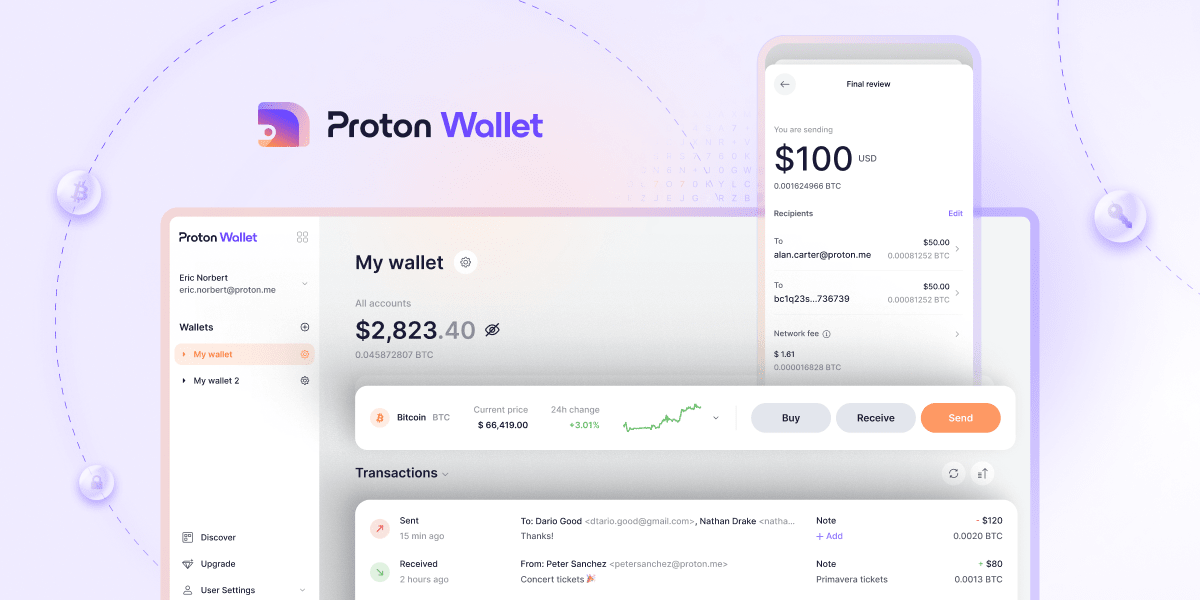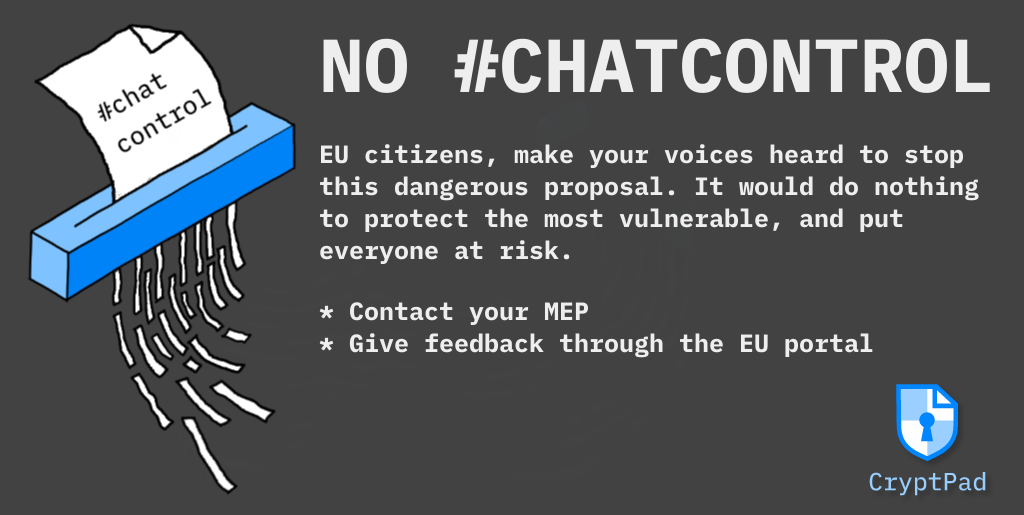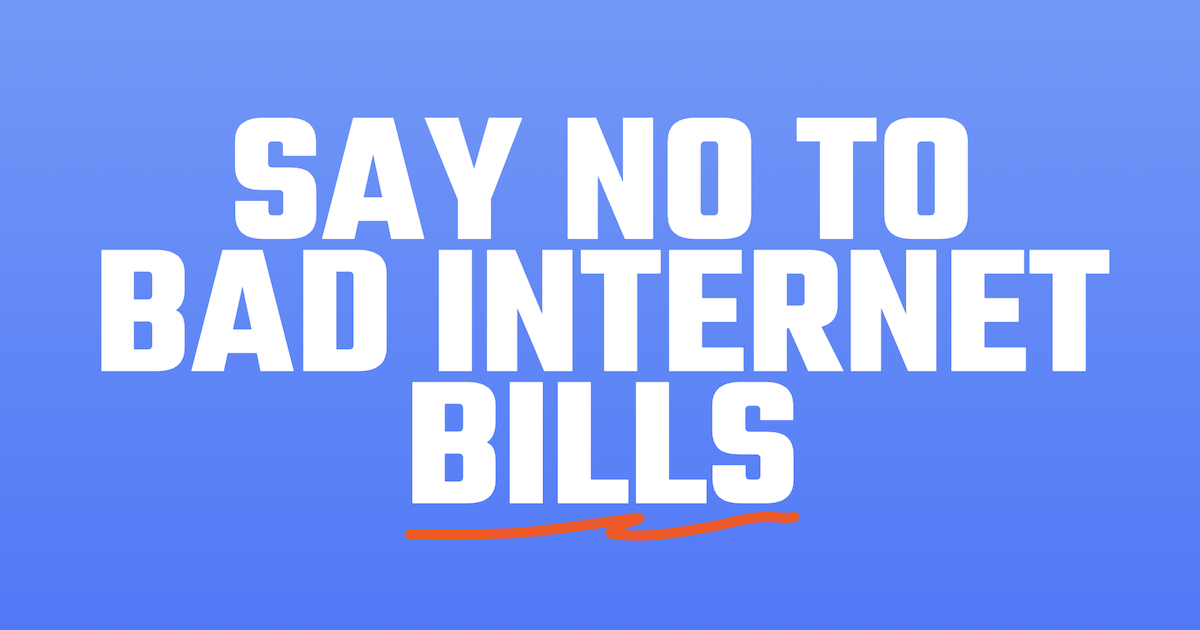
- 14 Posts
- 147 Comments
Doesn’t answer your question directly, but nostr is working on this. Nostr is an open protocol like ActivityPub (which underlies Mastodon and Lemmy). Its main use is as a twitter clone right now, but it also has a very new reddit clone and can theoretically support videos as well. And you can choose your own algorithm. Here’s all the choices I get from one of their clients, and there’s dozens of nostr clients to choose from. The cool thing is that anybody can make and publish an algorithm and you can subscribe to any algorithm. Your client does all the sorting locally.



Chat control was beat. This can be too. Contact your MEP, let them know this issue is important to you: https://www.europarl.europa.eu/meps/en/home


Crypto won’t scale
And yet every year, for 15 years, the transaction capacity has continued to increase. Networking protocols (TCP/IP, SMTP, etc) also didn’t scale to “internet scale” in the first 15 years. They just kept adding new layers to the stack and optimizing it until it did. Just like Bitcoin added Lightning, Taproot, etc to improve scaling.
In the last two months, Nostr users alone (decentralized twitter clone like Mastodon) sent each other 2.6 million tips (individual transactions) over Bitcoin lightning. None of that requires an on-chain transaction, none of it required high fees. It works. It scales. It continues to improve. Lightning has capacity for trillions more transactions because capacity is not tied to chain space.
Also bitcoin isn’t even private and you are basically shouting to the world every time you make a payment.
Bitcoin is pseudonymous. If you make a wallet, nobody knows you own that wallet unless you tell them (or a third party like an exchange), but the balance and transactions on-chain are visible. There are ways to make your transactions more private, like coinjoin, you can have multiple addresses with multiple coins.
With lightning, transactions are opaque except to you and any nodes you route through, because lightning transactions don’t go on chain. This also means nobody knows your current balance. If you make a transaction between two lightning nodes that share a channel, nobody knows that transaction was made outside of those two nodes. Privacy continues to improve, see BOLT 12 for the latest upgrades in this area.


At a high demand time, it could take hours to complete a transaction (if it even went through at all) and with an outrageous fee up to dozens of dollars.
Bitcoin has never been known for time efficient nor competitive fees (except for maybe in the beginning when nobody uses it).
At least you admit people use it. Bitcoin lightning enables transactions in under a second for pennies in fees, it’s been around for 5+ years. Your information is outdated. In the last two months, Nostr users alone (decentralized twitter clone like Mastodon) sent each other 2.6 million tips (individual transactions) over Bitcoin lightning. None of that requires an on-chain transaction, none of it required high fees. It works. It scales. It continues to improve.


I’ve had bitcoin transactions that literally took several days to process. This was also using an average fee.
I use Bitcoin regularly, this has literally never happened to me. If your transaction took days either you accidentally set a super low fee or your wallet was bugged somehow. Generally speaking the only way an “average fee” transaction takes more than a block or two is if you pay an average fee right before a rare massive fee spike, in which case, you can do a “replacement” transaction by upping the fee or just wait. Look up “average Bitcoin transaction fees” if you want to see rarity and size of fee spikes.
A handful of minutes or hours in a high-fee scenario, btw, is still much faster than ACH or international wires. Even if the money appears to move that quickly with traditional banking, full settlement is often measured in days to weeks, ask any vendor whose had a chargeback or anybody whose tried to “withdraw” from their Venmo right after depositing to it. Bitcoin’s main chain and Fedwire (used to settle liquidity between US banks) have equivalent daily transaction capacity.
You can open a lightning channel with a single on-chain transaction. That lightning channel can stay open for years and process trillions of transactions, instantly, for pennies in fees. If you need a transaction done quickly, you shouldn’t be sending it on main chain to begin with.
Long-term the vision is for folks to be using lightning or other L2s for everyday transactions, not main chain. Most Bitcoin transactions by transaction count are already on lightning. Lightning has been out for 5+ years now. It works well and gets better every year.


45 minutes to process a transaction and requires the burning down of several rainforests per transaction.
Don’t listen to people who are critical of a thing if they clearly don’t even understand the basics of how it works. On main chain, a Bitcoin transaction typically take up to ten minutes (the time between blocks). It can take longer if you set a super low fee, but you can guarantee your payment goes into the next block by paying an average fee, usually around $0.75. Your wallet does this all automatically.
On lightning where most transactions occur these days (secured by main chain) transactions settle fully in under a second. Do your own research.
Besides, we all know Bitcoin only takes a single rainforest per transaction, it’s been that way since the great rainfork which is ancient history at this point.


Bitcoin lightning is absolutely hilarious. Your solution to Bitcoins problems is - not using Bitcoin. Wow, galaxy brain move.
Bitcoin lightning is Bitcoin. It’s a smart contract on the Bitcoin main chain. You move Bitcoin “into” lightning by sending it to that smart contract, you move it “out of” lightning by having that smart contract close. It inherits the security of Bitcoin main chain while getting the transaction speed of off-chain.
Agree to disagree about the rest. Energy use like carbon footprint is about “where you draw the box”. Off-peak demand is the cheapest power available, and it tends to be renewable. That trend continues to escalate.


I see this comment every now and then, and it always forgets the cost of the transaction, confirmation time
With Bitcoin lightning the confirmation time is under a second and you pay pennies in fees as you don’t make the transaction on the main chain. Even main chain is like $1.50 for a 10 minute confirmation time which for many transactions like an international wire is still a great deal.
The energy cost is extraordinary, and the end user is taxed for the use of their own dollars.
The energy cost to maintain the base chain is <1% of global energy use, mostly from renewables at off-peak hours since miners have to chase the cheapest electricity. Remittance services and other funds transfer companies also use energy and human capital to move value around, it’s not free. A single on-chain tx can open a lightning channel which can contain and secure trillions of transactions off-chain. Processing these transactions takes the energy equivalent of sending an e-mail. Users are “taxed for the use of their own dollars” in regular currency as well. Who pays that tax and the amount of that tax varies by context.
It can’t scale
In the last two months alone, Nostr users (decentralized twitter clone like Mastodon) sent each other 3 million tips over Bitcoin lightning. It absolutely scales. And there is plenty of more room to grow.
Its value only increases because it manufactures its own scarcity.
Its value also comes from its use as a transactional network and from it’s political neutrality geopolitically speaking. And from the known supply which nobody can manipulate. It’s not purely scarcity.
naturally moves toward centralization since mining becomes too large an activity for the individual to reap any benefit
And yet mining is still distributed globally. Any person, company, or country with spare energy resources can buy an ASIC and mine. Mining pools have become more centralized, but a lot of work has been done on that in recent years and that trend is reversing as a result.


Bitcoin wasn’t down. Hasn’t had a single hour of downtime or hack since it started 15 years ago in 2008. No bank holidays. Clear and transparent supply, 100% open source code. Not run by any single government, corporate board, or CEO. Sends money across the globe in under a second for pennies in fees, all you need is a phone. Powerful stuff.
Bitcoin uses <1% of global electrical usage, mostly from renewables since miners must chase the cheapest electricity and renewables at off-peak times are it. They turn off during times of peak demand since they can’t afford higher-priced electricity. How do you think that compares to banks? Remittance services? All the infrastructure used to move money from point A to point B? It takes energy and even more valuable: human capital to move value around.
For reasons why Bitcoin isn’t a huge waste of energy and why it actually helps stabilize grids, increase efficiency, decrease electrical costs, and subsidizes the provision of new renewable infrastructure, see https://endthefud.org/
Gotta love to use a currency with that fluctuating value. /s
When I pay for a coffee and the shop says that I paid the equivalent of 5 cents. Then, I pay the rest and all of a sudden: I paid the equivalent of 100€.
How has your USD or EUR held up the last 5 years? Buys fewer eggs than it used to huh? Bitcoin has held up pretty damned well. Its price has gotten more stable with time, it is more stable than most national currencies already. Stability is a reflection of scale. Need perfect stability? You can use Bitcoin for payments while receiving and sending in USD or your currency of choice, just use Bitcoin as the settlement layer. Strike already does this in like 20+ countries with instant settlement times thanks to lightning. And no fees.
Fiat currency is guaranteed to lose value over time. Central banks set a target inflation rate of 2-3% per year. Bitcoin may gain or lose value over time. Choosing between a guaranteed loss of value or a potential loss/gain in value, the choice is clear for me. For 15 years in a row, holding BTC has been a better investment than holding USD.
So, you agree that it’s not anonymous?
It’s pseudonymous, with proper use, you can achieve a great deal of anonymity with it, especially now that lightning and coinjoin are things. Monero does most of that automatically, so if you want hard anonymity the easy way, use Monero. Bitcoin’s privacy continues to increase with time and is a priority for developers. An auditable supply is also crucial.
ahh yes crypto, where every single transaction is kept on a permanent ledger, truly a bastion of privacy unlike this dollar bill that may or may not have been used to snort cocaine or put in a strippers thong.
A ledger which is pseudonymous. On Bitcoin lightning, your transactions don’t go on (but are secured by) the Bitcoin ledger. Monero offers even more privacy.
“Crypto” is full of scams, you’re right about that. Bitcoin has been around for 15 years. You can use it to send money to anybody on planet earth with a phone in under a second (with lightning) for pennies in fees. It has a transparent, auditable supply. It has done this function without a single bank holiday, hack, or hour of downtime since the 2008 financial crisis, through a pandemic, wars, and attempted bans by nation states. No country controls it, there is no CEO and no board, it runs according to an open source protocol.
Bitcoin has a market cap bigger than Sweden’s GDP, currently around a trillion USD which places it in the top 20 countries by GDP. On average, every year it grows no matter whether you are measuring market cap, number of nodes, number of transactions, volume of money moved, whatever. It processes millions of transactions and moves billions of dollars of value a year. On nostr alone it has processed 2.9 million transactions over the past two months.
Bitcoin works. It’s been working. People all over the globe use it as a currency, as an asset, and as a payment method.
GNU Taler is worse for privacy than cash in many ways and intermediaries all your transactions. It’s funded by major banks and the EU, the same EU that wants Chat Control. The money in it “expires”. It’s a backdoor for a Central Bank Digital Currency, which is some dystopian shit that will enable total financial surveillance and control. https://lemmy.ml/post/17733761
#shopstr is a growing alternative which uses nostr for posting instead of Facebook. Unfortunately not as many people but I always check there first and list there preferentially. You can use any payment method with is but most people use Bitcoin lightning, which has some privacy pros and cons but certainly more private than Facebook.


If you are an American and care about privacy:
- Write your representatives. Your message can be as simple as “I care about privacy”. It’s important they know you are watching their votes.
- Participate in elections, particularly downballot elections. Congressional makeup at the federal and state level matters a lot more for these kinds of things than who is president. Many recent laws like “right to repair” etc have happened at the state level since you can bypass federal congressional gridlock.
- Participate in primaries. Most Americans do not vote, most voters do not vote in primaries. If you don’t like having to choose “the lesser of two evils”, primaries give you much much more choice to express your preferences. As a primary voter, you have an outsized influence on the electoral system and can help determine the options other people get to choose from.
- Donate to PACs and non-profits working to protect your right to privacy. The EFF is an awesome non-profit. One benefit of donating to PACs is that they keep an eye on races across the country and help find and fund candidates who will advanced privacy legislation.
- “Vote with your dollar” when you buy things. In many cases, your purchasing power outweighs the political power of your vote.


It is nonsense that courts can require an online platform to host content from somebody they don’t agree with, this is compelled speech. And we’re cheering it on because X is seen as a political opponent. It sure will be fun when the shoe is on the other foot and courts are thinking they have some right to force lemmy to host or not host certain kinds of content that doesn’t agree w the new party line or is “misinformation”. “COVID was a lab leak” was misinformation until the world government’s decided it might actually have merit as an idea. Handing the government speech control powers like this is dangerous. Democracy relies on people being able to choose what they say and don’t say and share or not share that information.


If you want an easy onboarding solution for nostr check out https://damus.io/
The cool thing is if you don’t like the first app you try, there’s dozens of others, and your data moves across all of them seamlessly. I started on iris and now I’m on nostrudel and I’ll probably try out a few more over the next year before I really settle in to the best one for me.
If you have questions, check out !nostr@lemmy.world or use the #asknostr tag once you have your account setup, people are very helpful there!
Relying on legislation to get passed or not get passed only gets us so far. Yes, absolutely, write your reps and vote, but also donate to your favorite decentralized, private tech project so they can improve the user experience and get more users. We need to make tyrannical censorship & surveillance not only technically impossible but politically unfeasible. The way we do that is by building better tech and getting more and more of the population to use it.
You don’t have to convert it to fiat if you don’t want to, plenty of people use Bitcoin as currency, that is the entire point. Users tipped each other nearly a million USD worth of it on nostr int he last two months ($950k). You can go to any major city and find place to buy/sell/spend it. Many places online accept it too, of course. The network effect is quite large. Bitcoin’s market cap is larger than sweden’s GDP. It moves trillions of dollars of value every year. Not people “hodling”, people using it to do funds transfer.
But if you want to, you can absolutely convert it, with a single click. Those middlemen typically take a lower cut since they’re doing conversion not sending/receiving/settlement which is a much risker and therefore expensive service. There is, for example, no counterparty risk if you convert somebody’s BTC to their native currency, but there is if you transfer that person’s money to another person or act as an intermediary. I use strike for this, strike’s conversion fee is less than 1%, in many apps or exchanges, conversion is literally free because the app wants to incentivize you to store money with them and because it’s just updating some row in a database.
And what are the fees like on those services? Does their fee structure work for micropayments? And do they support every country out-of-the box or are there some they don’t support? How do they handle chargebacks and counter-party risk? What is their settlement time? Do they occasionally freeze accounts for seemingly nonsensical or political reasons? Since we’re on the privacy community, how is their privacy? Can you, for example, sign up as an instance admin and automatically have them forward payments to content creators, or would you need to custom-code that through an API and then register with a non-standard account because now you aren’t a regular user but an intermediary? Try being an “intermediary” on Paypal and your account will get shut down very quickly, because you aren’t allowed to do that. You’d have to custom negotiate a special deal with them and fill out a bunch more paperwork and probably pay higher fees and meet a bunch of other requirements like being incorporated and obtaining insurance and auditors and the list goes on and on.
Ask anybody in the adult industry how much trouble they have getting access to these services even though the business they are engaging in is perfectly legal. Not grey area legal, fully certified legal by the US Supreme Court and appellate courts up and down the system for decades.
Answer these questions and you start to see the appeal of not having a third-party custodian do all this. Bitcoin lightning can do all of this, instantly, for 10-1000x less fees and massively less complication. You can say you don’t like crypto, that’s fine, but it’s legitimately better at solving these kinds of problems which is why adoption has been growing for 15 straight years.
25% of Americans own crypto, usage continues to grow year after year both domestically and internationally. Most people have a crypto-capable wallet on their phone (CashApp, Venmo, Paypal). It solves problems traditional financial systems can’t solve well. That’s a trend that has been happening for 15 years. You can be mad at it, but it doesn’t change that it’s true.
What exactly would prevent people from paying in actual currencies? Crypto is in no way a requirement for a YT replacement whatsoever.
You want to get paid without a middleman
This is the part you missed. Imagine Lemmy but for videos instead of links. Users pay creators via some subscription or likes mechanism. Lemmy instance admins do not want to deal with:
- Custodying the funds and having to keep them safe
- Having to make connections to every major national banking system or payment processor
- Dealing with chargebacks, payment disputes, counterparty risks, KYC/AML/other onerous regulations etc. People are used to cards being “instant” but full settlement on the backend takes days to weeks depending on how you define “settlement”.
Doing these things is an absolute nightmare and takes a lot of human time. Human time costs lots of money. All this just to move money from viewers to content creators.
Bitcoin via lightning, for example, can do all of this for them without any of that mess. Payments can go P2P directly from viewers to creators. Payments can be settled instantly for <1% in fees, usually pennies.
People are working on this for general decentralized storage, some of them have existed and been functional for 5+ years, I’m not familiar with all the names but there’s jstor (jstore?), filecoin, etc. When you have a system where you need to manage a database (and everybody’s copy of the database is the same) but you need to do it in a decentralized, P2P way, blockchain is really the only solution. A system which records who is hosting what and allows people to buy & sell storage is exactly this: a database with some buy/sell frontend.
The key problem that needs to be solved is the monetization problem. Nostr has a potential solution though. Over the last two months alone, their users have “zapped” (tipped/donated) other users around 950K (nearly 1 mil!) USD worth via lightning and that number continues to grow. And it doesn’t just make it easy to pay content creators, but to also put a portion of your “zaps” towards the relay you use or development of the software if you want. If you have a nostr account, you can easily tie it to a lightning address to send/receive tips, nostr doesn’t take a fee. Relays can also portion out a bit of their zaps for the people who publish the most engaging content on their relay. The possibilities are quite extensive. And because it’s over lightning, zaps happen instantly and for pennies or less in fees. Though, you can use nostr without zaps at all.
For those unfamiliar with nostr, it’s a decentralized social media software much like ActivityPub/mastodon, the main use right now is as a twitter/instagram clone but there’s also a reddit-style section being built up as well. Video hosting itself could be done by relays or through a P2P system similar to IPFS. Moderation abilities from the perspective of the instance/relay are identical to activitypub/mastodon. But one bonus if that if your relay goes down, you don’t lose your identity, since your identity and relay are separate. And if you change apps or relays (you are typically connected to multiple relays), all your content moves with you seamlessly. And the payment/zap infrastructure is all decentralized, relays don’t ever custody or manage the payments. If you tip a content creator, it goes directly from you to them. The lightning network has basically limitless transaction capacity. If you have cash app, it supports lightning, so you can already send zaps (you will need different apps to receive zaps though because cash app doesn’t support the LNURL standard). Strike natively supports it. And because it’s lightning, it works in every country automatically.
Long-term, if I am a content creator, which “fedi”-type system is going to be attractive to me? One where users can send me tips and mircopayments or one where they can’t? This is why I think nostr is going to win out long-term over AP/Mastodon. Mastodon could add this kind of functionality but I don’t get the impression they’re open to it. People may not want to commit to yet another $5/month subscription to a YouTuber’s patreon or nebula or whatever, but they are happy to tip 1-10c after watching a video. So there’s a psychological beauty to micropayments as well. As some random person I have made like 7c on tips this month, but I’ve also given out plenty to other people.
Source about nostr fees: https://lemmy.ml/post/17824358

Also it’s worth mentioning the “how to distribute content among peers” problem has mostly been solved and has for over a decade, just that nobody has built out the UX for it for a YouTube clone. Torrents exist, #freenet and #hyphanet exist, #ipfs exists, these are all excellent platforms for storing and distributing content without relying on expensive, centralized hosting. Instead, users share the burden of hosting. There’s a whole category of software that solves this problem in different ways (P2P). Unfortunately, every new generation of developers seems to want to re-invent the wheel instead of using time-tested tech that already exists but just needs a UX refresh or maybe some protocol improvements.
If you have a tube site and it says “to skip ads, install IPFS”, everybody would be using IPFS.


From their FAQ: "Taler supports push and pull payments between wallets (also known as peer-to-peer payments). While the payment appears to be directly between wallets, technically the operation is intermediated by the payment service provider which will typically be legally required to identify the recipient of the funds before allowing the transaction to complete. "
I made a post about all the problems w Taler here if you’re interested https://lemmy.ml/post/17733761











Am I missing something? “Like all our services, Proton Wallet is open source so all of our security claims can be checked by the public to enhance security. We have also published the Proton Wallet security model so you can understand how Proton Wallet protects both privacy and security.”